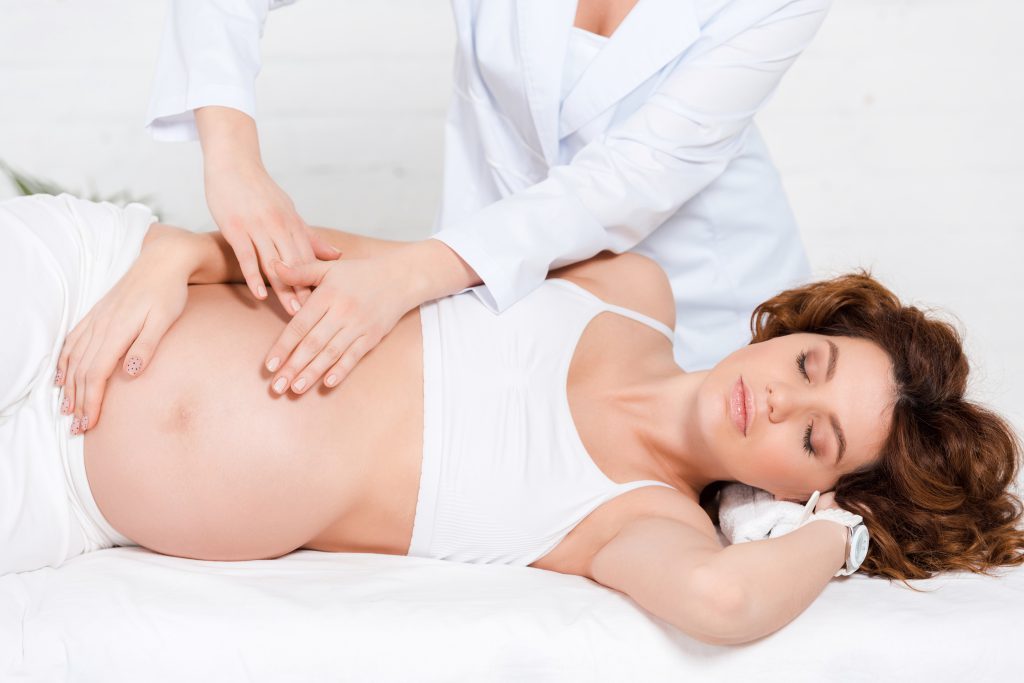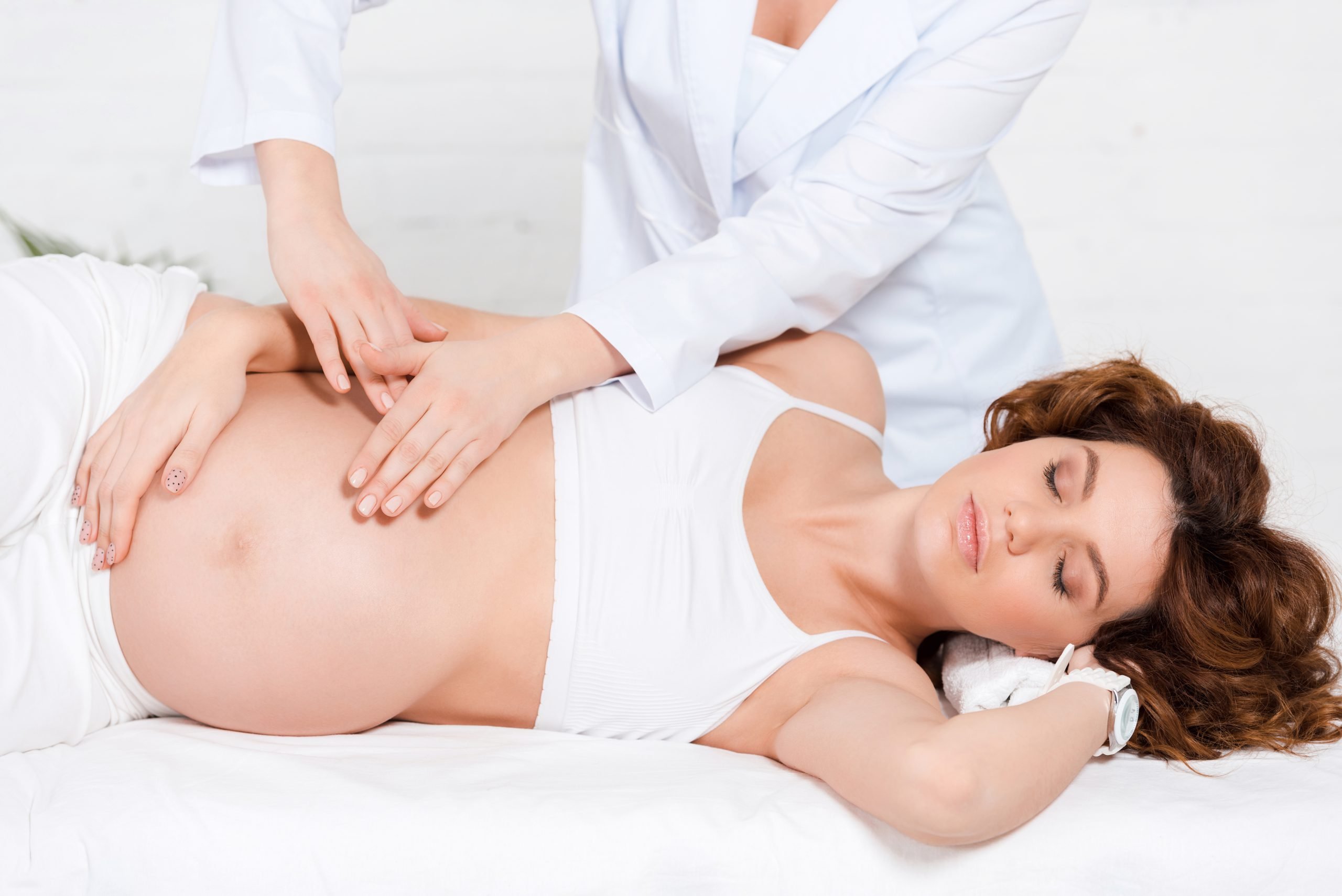|
|
Throughout the three trimester stages of your pregnancy, you will experience dramatic physical and emotional changes. A prenatal massage can create a supportive environment for you and your growing baby during this time and beyond. It can help alleviate many of these common symptoms, and your baby can benefit from it as well
It has been found in studies that women who received regular pre-natal massages experience decreased back and shoulder pain, less anxiety and/or depression, improved mood and sleep, reduction of stress hormones in their bodies, shorter and easier labour, lessened hospital stays, and fewer incidents of post-partum depression. In addition, these pregnant women also had fewer complications during labour, and their infants experienced fewer incidents of postnatal complications (e.g., premature babies, low birth weight). It has been also found that the beneficial biochemicals that relax you during the massage also cross the placenta to your baby
Your body is constantly adjusting to the hormonal changes that occur throughout the pregnancy, leading to many common symptoms. You may experience unexpected mood swings, frequent urination, constipation, blood pressure changes (low blood pressure can lead to symptoms of extreme fatigue or lack of energy, light-headedness or faint; high blood pressure can lead to hypertension or PIH – Pregnancy-Induced Hypertension, aka pre-eclampsia, eclampsia, or toxemia, in which case a midwife or physician should be informed), fluid retention leading to edema (swelling in legs is more common than in the face or hands), varicose veins, and compression syndromes. You may also experience musculoskeletal changes resulting from the influence of hormones such as estrogen, progesterone, and relaxin: it produces greater joint movement and yield of the abdomen (because of increased elasticity in the collagen located in the joint capsules, ligaments, and fascia). The weight-bearing joints are the most vulnerable, such as pelvis, ankle, and foot. Postural changes are also inevitable. Muscle tension can occur not only as a result of postural changes, but also from emotional factors. Other common occurrences associated with breast changes include increased tenderness, heightened sensitivity, and increased fullness or heaviness. As the baby nears term, you may have difficulty sleeping and feel restless.
Regular massage therapy sessions can help decrease, manage, and monitor these symptoms that develop throughout the three trimesters. It can help increase your energy level and sense of well-being, integrate body-mind connection, manage stress and bring about a state of relaxation, thereby making it easier for you to accept your constantly evolving physical and emotional being in a calm and joyful way. Studies have shown that massage therapy can help improve circulatory and lymphatic systems, thus boosting immunity, as well as stabilizing hormonal levels – all of which play an important role in having a healthy and positive pregnancy, for both you and your growing baby. It also keeps your muscles and joints in as healthy and optimal a state as possible, thus providing support, stability, and flexibility that you need throughout this period of increasing weight, while relieving aches and soreness. On an emotional level, an expectant mother receiving nurturing touch feels better about herself, and it enhances the mother-baby bonding.
Breathing exercises will also be taught and encouraged during the treatments to induce relaxation, which will become very useful during labour as well. Remedial exercises will also be implemented to help you strengthen your abdomen thus leading to an easier and faster labour, as well as to strengthen your low back and weight-bearing joints. Home care and tips given during each massage therapy session are designed to help manage your ever-changing body through various stages as you present in each visit, for example, a figure-8 cold towel around the breasts helps to decrease the tenderness or swelling, or placing a towel or wedge cushion under your right hip will help to prevent hypotension while you’re lying down on your back.
However, it does not stop at the day of delivery. Once you have given birth, your body goes through yet another change – both physical and emotional. This stage is known as the “Fourth Trimester” or Postpartum. Physical changes and pains may continue to stay after delivery. As enough time passes, your body will regain its pre-pregnancy balance. Massage therapy can help in restoring body balance more readily and prevent chronic pain. Immediately postpartum, the ligaments are at its longest, thus joints are at their most unstable, because of the hormone relaxin. Relaxin helps with the birthing process by relaxing the ligaments at the base of the pelvis. It can take up to 6 months postpartum before ligaments return to their original length. This is the time when your muscles are key in playing the role of supporting the joints. In addition, you will continue to experience shoulder, neck, and back pain from breast- or bottle-feeding, lifting and carrying the baby. Hence, continuing regular massage therapy sessions and remedial exercises can help promote healthy muscles, as well as enhance the healing process by increased circulation.
Let’s not forget about the emotional changes that a new father can experience as well. Anxiety about the pregnancy, labour, and delivery are normal and natural in a new father, especially with a first pregnancy. In the modern era, new fathers are more actively involved in the parental process, from pregnancy to post-natal to beyond. It would be wise for the fathers as well as the mothers to start certain exercises to prepare their bodies for taking care of the baby. For instance, weight training to strengthen arms and legs will help in the ease of lifting and carrying the baby many times throughout the day and night; stretching routines to stretch out their chests is equally important as well (now their tight neck and shoulders from work is compounded by picking up the baby as well as bottle-feeding – this also encourage baby-father bonding too!). They may experience muscle soreness during this preparation workout time, so they, too, can benefit from massage therapy during this entire time by keeping their muscles healthy, optimal, and well prepared.
As with any health care options, before initiating massage therapy treatments, consult your obstetrician – especially if you are high-risk. Certain conditions do require your physician’s approval. Although massage therapy is generally a safe treatment, you need to let your therapist know of any changes in your physical health so that modifications to treatment can be made. If complications should arise, whether noticed by you or the therapist, you need to consult your obstetrician regarding continuation of treatments.
According to “Clinical Massage Therapy” by F. Rattray and L. Ludwig, the following warning symptoms are considered serious and call for reporting to your obstetrician, midwife, or physician IMMEDIATELY:
- Vaginal Bleeding: especially the first 24 weeks, but even after this time is a red flag
- Severe Continuous Abdominal Pain: premature placenta separation or other acute abdominal emergency
- Water Breaking or Rupture of Membrane Preceding Labour Onset: may indicate premature labour
- Pre-Eclampsia Signs
- 2nd Trimester: mistiness, blurring, or change in vision – may signify elevated blood pressur
- Continuous severe headache over the front or back of head accompanied by visual disturbances that is not alleviated by usual remedies – may signify severe pre-eclampsia or hypertension
- Swelling: face and hands, especially fingers – could signify pre-eclampsia.
- Abdominal Pain: on upper right side of abdomen
The following symptoms call for early report to midwife or physician – within 24 HOURS:
- Temperature: 38.5°C or higher
- Frequency and Pain Urinating: possible UTI (urinary tract infection)
- Absence of Fetal Movement: it is not unusual for even up to 24 hours for there to have no movement, and even several days during 22nd to 24th weeks; notify as a precaution if no movement is felt longer than 24 hours
- Excessive Vomiting: not uncommon in 1st and 3rd trimesters, but if so severe and frequent that food or liquid is not retained, seek medical attention
- Excessive Itching – not the common generalized itching: may suggest liver dysfunction (cholestasis), thus requiring medical notification
Copyright © Inspired Life Health Centre Inc.
Reproduction of this document or any portion thereof without prior written consent is prohibited.





